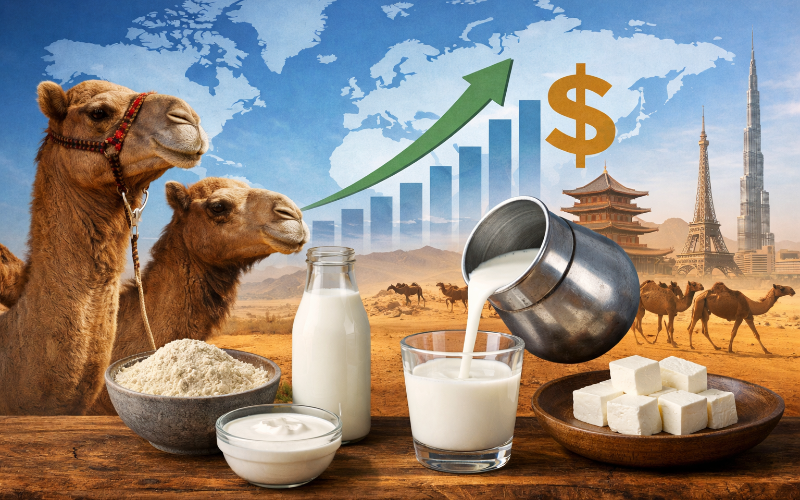Nestlé Urges New Zealand Dairy Farmers to Enhance Efficiency Amid Global Emissions Challenge
Source: DairyNews.today
Nestlé's global procurement category lead for dairy, Bruno Spire, has issued a call to action for New Zealand's dairy industry, challenging the widely held belief that New Zealand dairy farms have the lowest global carbon footprint.

Speaking remotely fr om Switzerland at the New Zealand Institute of Primary Industry Management conference at Mystery Creek, Spire emphasized that while New Zealand's emissions are low, they are not the lowest globally, particularly when compared to European and North American farming models.
Spire pointed out that European and North American dairy farmers, who often house cows indoors for large portions of the year, have access to more advanced technologies that help significantly reduce emissions. "Our projections are showing that European and North American [farmers] have more opportunities to significantly reduce their emissions," he stated.
In response to this, Spire stressed that for New Zealand to maintain its attractiveness to global buyers like Nestlé, the dairy industry must intensify its efforts to address emissions. "The good thing is that there are solutions," he noted, highlighting the need for improved productivity as a key area of focus.
Although New Zealand has made strides in milk efficiency, Spire indicated that the country still lags behind other nations. During a Q&A session, he identified per-cow efficiency and productivity as the biggest opportunities for reducing carbon emissions in New Zealand. Enhancing cow nutrition, for example, could lead to significant gains in efficiency, which would not only lower emissions but also bolster farmers' resilience to market volatility by potentially increasing revenue.
Rather than viewing these challenges as threats, Spire framed them as opportunities for New Zealand dairy farmers to become more efficient and sustainable. He dismissed concerns that decarbonization efforts might push New Zealand toward more industrial farming practices, wh ere cows are housed indoors, stating, "I don’t think consumers understand how meat, vegetables, and milk are produced. Some are asking and some are willing to understand, but in general, they don’t really know. What they are asking is that the product is safe and that the product is sustainable."
Spire acknowledged the historical and practical significance of New Zealand's pasture-based farming model and emphasized that the goal is to improve the efficiency of this system rather than overhaul it. When asked if Nestlé would be willing to pay a premium to farmers who adopt more sustainable practices, Spire recognized the difficulties farmers face but reassured them of Nestlé’s commitment to supporting these transitions. "We have a very simple way of looking at it: no farmers, no milk, no Nestlé business," he stated, highlighting Nestlé's ongoing efforts to collaborate with farmers worldwide to finance and implement sustainable changes.
Despite recognizing the progress made, Spire was candid in his assessment that New Zealand is not moving fast enough to meet Nestlé's needs. "The straight answer is no," he said, while also praising the quality of discussions and the commitment of New Zealand’s dairy industry. "Are we doing enough? No, we could always do more. Is it going in the right direction? Absolutely."
As Nestlé navigates its ambitious roadmap to achieve zero emissions—aiming for a 20% reduction by 2025 and 50% by 2030—the company underscores that two-thirds of its emissions stem from where ingredients, including dairy, are produced. "Without achieving the reductions on dairy, Nestlé will not be able to achieve its overall decarbonization objectives," Spire concluded, making it clear that New Zealand’s role in this global effort is critical.
With a long-standing relationship with New Zealand and dairy remaining central to its $20 billion annual ingredient spend, Nestlé's message is both a challenge and an opportunity for New Zealand dairy farmers to enhance their efficiency, embrace innovation, and contribute to a more sustainable global dairy supply chain.
Spire pointed out that European and North American dairy farmers, who often house cows indoors for large portions of the year, have access to more advanced technologies that help significantly reduce emissions. "Our projections are showing that European and North American [farmers] have more opportunities to significantly reduce their emissions," he stated.
In response to this, Spire stressed that for New Zealand to maintain its attractiveness to global buyers like Nestlé, the dairy industry must intensify its efforts to address emissions. "The good thing is that there are solutions," he noted, highlighting the need for improved productivity as a key area of focus.
Although New Zealand has made strides in milk efficiency, Spire indicated that the country still lags behind other nations. During a Q&A session, he identified per-cow efficiency and productivity as the biggest opportunities for reducing carbon emissions in New Zealand. Enhancing cow nutrition, for example, could lead to significant gains in efficiency, which would not only lower emissions but also bolster farmers' resilience to market volatility by potentially increasing revenue.
Rather than viewing these challenges as threats, Spire framed them as opportunities for New Zealand dairy farmers to become more efficient and sustainable. He dismissed concerns that decarbonization efforts might push New Zealand toward more industrial farming practices, wh ere cows are housed indoors, stating, "I don’t think consumers understand how meat, vegetables, and milk are produced. Some are asking and some are willing to understand, but in general, they don’t really know. What they are asking is that the product is safe and that the product is sustainable."
Spire acknowledged the historical and practical significance of New Zealand's pasture-based farming model and emphasized that the goal is to improve the efficiency of this system rather than overhaul it. When asked if Nestlé would be willing to pay a premium to farmers who adopt more sustainable practices, Spire recognized the difficulties farmers face but reassured them of Nestlé’s commitment to supporting these transitions. "We have a very simple way of looking at it: no farmers, no milk, no Nestlé business," he stated, highlighting Nestlé's ongoing efforts to collaborate with farmers worldwide to finance and implement sustainable changes.
Despite recognizing the progress made, Spire was candid in his assessment that New Zealand is not moving fast enough to meet Nestlé's needs. "The straight answer is no," he said, while also praising the quality of discussions and the commitment of New Zealand’s dairy industry. "Are we doing enough? No, we could always do more. Is it going in the right direction? Absolutely."
As Nestlé navigates its ambitious roadmap to achieve zero emissions—aiming for a 20% reduction by 2025 and 50% by 2030—the company underscores that two-thirds of its emissions stem from where ingredients, including dairy, are produced. "Without achieving the reductions on dairy, Nestlé will not be able to achieve its overall decarbonization objectives," Spire concluded, making it clear that New Zealand’s role in this global effort is critical.
With a long-standing relationship with New Zealand and dairy remaining central to its $20 billion annual ingredient spend, Nestlé's message is both a challenge and an opportunity for New Zealand dairy farmers to enhance their efficiency, embrace innovation, and contribute to a more sustainable global dairy supply chain.
Key News of the Week









